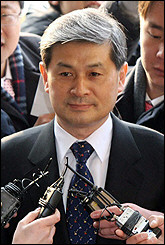How many scientists fabricated or misrepresented the research?
It has long been posed a question that has not been answered so far: in what extent is the practice of misconduct in professionalism common? In an article published in the online journal PLoS ONE, Daniele Fanelli of the University of Edinburgh reported the results of the first meta-analysis of surveys that scientists self-assess professional behavior. The results show that fabricating or misleading data is much more than people think and may be particularly high in medical studies.
Recent scandals like the case of Hwang Woo-Suk (reportedly deceiving were successful in creating human-ND human embryonic stem cells) or Jon Sudbø (counterfeiting cancer research data) - ND) has proved that fabricated studies can be published, even in the most prestigious newspapers in the world. The media and many scientists tend to explain things like this that are pathological violations of some of the 'soup-making worms' . However, the general feeling, as well as increasingly convincing evidence, shows that this may be the tip of an iceberg, because fraud and the more sophisticated forms of misbehavior may be similar. for popular. But so far, the actual numbers related to this issue are still controversial.
Estimates are based on indirect survey data (for example, the number of studies that are retracted after random data has been published or checked), which results in very contradictory results. Therefore, many researchers conducted a direct survey by questionnaire for scientists in different countries and in different research fields.However, they used different methods and questions for the investigators, resulting in the results not quite convincing.
In order for these survey results to be comparable, a comprehensive analysis focuses on behaviors that actually distort scientific knowledge (including data theft and many other illicit jobs) and calculations. The frequency of scientists who confessed to having committed misconduct at least once and those who knew their colleagues was wrong.
 Is the study real? (Photo: physorg.com)
Is the study real? (Photo: physorg.com)
In surveys, an average of 2% of scientists admitted that they had "fabricated", "made a mistake" or "revised" data to "improve results" at least once. , and up to 34% acknowledged problematic ways of doing research, including 'not publishing data that contradicts a previous study', and 'not publishing some analytical results. just because the feeling is that they are not accurate. '
In the survey of behavioral colleagues, 14% of respondents knew a colleague had fabricated, made a mistake or corrected the data, and up to 72% knew his colleagues had confessed their ways lack of transparency in research.
In both forms of investigation, misconduct acts are more frequently recorded in medical and pharmacological researchers. This suggests that either they are more open and honest in their answers, or their field is actually more fraudulent and violating than other areas. If the second hypothesis is correct, public opinion will be more concerned about the fact that research funding from commercial companies is seriously disfiguring scientific evidence with the aim of promoting sales. medicines and treatments for diseases.
One more thing, the questionnaires include very sensitive questions, so it is possible that some people did not answer honestly, especially when asked about their behavior.Therefore, the figure of 2% above may still be modest compared to reality, while the figure of 14% is still undecided.
- Vietnam successfully fabricated multi-purpose dehumidifier and drying machine
- Successful fabrication of similar alloys palladium
- Environment friendly automatic sorting machine
- Invisibility cloak is about to come true
- Successfully fabricated laser device in laparoscopic surgery
- Paper ... stiffer than steel
- Si nanowires are magnetic: New materials for Spintronics
- Manufacturing self-healing gel from boys
- Launched a 24-bit measurement chip made in Vietnam
- Tunnel for automatic cars in the ground
- China exploded million-dollar scientist
- The US fabricated cancer detection equipment for only 20,000 VND
 'Fine laughs' - Scary and painful torture in ancient times
'Fine laughs' - Scary and painful torture in ancient times The sequence of numbers 142857 of the Egyptian pyramids is known as the strangest number in the world - Why?
The sequence of numbers 142857 of the Egyptian pyramids is known as the strangest number in the world - Why? History of the iron
History of the iron What is alum?
What is alum?